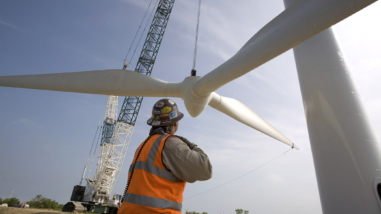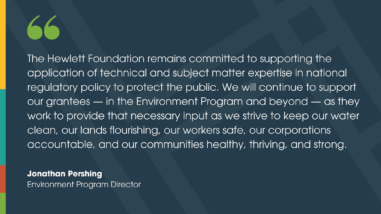Resources for the Future
For General Operating Support
-
Amount$1,000,000
-
Program
-
Date Awarded4/25/2019
-
Term12.0 Months
-
Type of SupportGeneral Support/Organization
Overview
Resources for the Future (RFF) is a think tank whose mission is to improve environmental, energy, and natural resource decisions through impartial economic research and policy engagement. RFF has two major program areas. The first is land, water, and nature. The second is energy and climate, where the focus is on environmental externalities and carbon pricing. RFF expertise is modeling and analysis of the cost and impact of climate policies on carbon, electricity, and energy commodity markets.
About the Grantee
Grantee Website
www.rff.org
Address
1616 P Street NW, Washington, DC, 20036-1400, United States
Grants to this Grantee
for the critical minerals program
Resources for the Future’s mission is to improve environmental, energy, and natural resource decisions through impartial economic research and policy engagement. Its program on transition minerals is focused on providing rigorous policy research, with an emphasis on both the economic dimensions of critical minerals challenges and the inherent interdisciplinarity of the issues. In particular, the organization plans to study the implications of the high upfront costs of expanding critical mineral supplies, the necessity of increased international cooperation in addressing critical minerals supply issues, challenges posed by critical mineral supply chains, and opportunities provided by technological innovation and increased mineral demand flexibility. (Substrategy: Transition Minerals)
for general operating support
Resources for the Future (RFF) works to improve environmental, energy, and natural resource decisions through impartial economic research and policy engagement. Securing a stable climate requires a wholesale transition of our energy systems and other economic sectors. RFF’s understanding of the economic system and the behaviors underpinning it is necessary to support this transition. Its 2023-2024 priorities include supporting strong implementation of federal climate investments, promoting an equitable transition, and supporting strong climate, trade, and industrial policy. (Substrategy: U.S. National Policy)



